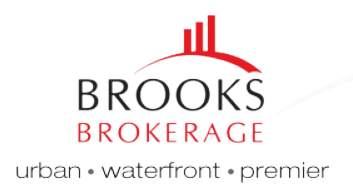CONVERSION CRAZE: Hot condo market spurs developers to remake apartments … But how long can trend last?
The race to convert apartments to condos is accelerating as developers seek to cash in while the market remains robust.
The same dynamics that have driven rising demand for condos are whetting developers’ appetite for condo conversions. Low interest rates, flexible mortgage products and a bookend-shaped market driven by first-time buyers and empty-nesters have kept the condo market busy for three-and-a-half years.
Boston-based Abrams Group – which is converting historic buildings in Lowell and Worcester into 232 loft-style condo units – is banking on 20-percent returns on their investments in those projects after they sell off the individual units.
Now the company has wrapped up negotiations to buy a luxury apartment building in Quincy’s Marina Bay section for $30 million. Abrams, which closed on the deal to buy the Reserve at Marina Bay building at 10 Seaport Drive on Friday, plans to put the units up for sale at prices ranging from $300,000 to $500,000.
Founding Partner Matthew Abrams said a repeat of the deep drop in Boston-area condo prices in the late 1980s is unlikely in the current economic climate.
With median single-family home prices hovering in the $360,000 range across the state, first-time home-buyers are looking to condos as a less expensive alternative.
”There’s strong demographic demand (from) the Echo Boomers,” Abrams said, referring to the group of nearly 80 million young people born between 1982 and 1995. ”Everybody wants to own real estate, because it’s been a tangible investment that’s produced over time.”
Condo conversions soared nationally in 2004. A survey of transactions by Marcus & Millichap Research Services tracked 249 significant condo conversions last year in major condo markets, up from 80 in 2003, including $325 million worth of transactions in Greater Boston. Research by Real Capital Analytics Inc. estimates that condo conversions nationwide hit $13.3 billion in 2004, up from $3 billion in 2003.
Real estate agents had no trouble marketing the 126-unit Excelsior condominium complex in Quincy, which opened in March. About 70 percent of the units were under agreement before the opening. Units sold for prices from $209,000 to $249,000, said Barbara Nickerson of Coldwell Banker in Milton.
The Excelsior is the only condominium portion of the massive Highpoint project on Quarry Street, which includes 394 apartments and has local approval to eventually build up to 1,040 total units.
Some developers, however, are resisting the lure of a quick score in favor of the steady income stream that rentals deliver. Intercontinental Real Estate Corp. of Boston is building 200 apartments as part of its Presidents’ Place development in Quincy. The 230,000-square-foot project also includes office and retail space.
Nicholas Iselin, Intercontinental’s director of development and construction for Intercontinental, said the company plans to market all 200 units as rentals even though, according to one recent study, average rents in greater Boston fell 10 percent in 2004.
”When we were first looking at the project, the apartment market was a little stronger than it is now,” Iselin said. ”It’s hard to ignore the rumblings of the condo market, but we haven’t made a commitment to go away from the apartment scenario.”
After dropping slightly in 2001, Massachusetts condo sales have been on a roll ever since. Sales volume rose 13 percent in 2002, 16 percent in 2003 and, finally, 27 percent in 2004 – a year when a record 19,710 units were sold.
There have been some recent signs that the Massachusetts condo market is losing momentum.
The state’s median condo price rose 4.7 percent in May, the smallest year-over-year increase in more than two years. Demand stayed strong, however, with sales volume up 17 percent.
New York-based Fitch Ratings warned in a recent report that the condo conversion market is getting increasingly risky for investors.
”Fitch is concerned that many markets are becoming overheated,” analysts Dina Treanor and Zanda Lynn wrote in a June 15 report. ”Fitch believes that investors or speculative buyers are responsible for a large percentage of condo sales in certain markets, creating an overinflated sense of demand.”
The report also cited the growing chasm between the prices per-unit being paid by condo developers compared with the prices of similar rental units.
”This price disconnect raises the concern that if the units cannot be sold, the overleveraged properties may default,” it stated.
A look at major condo conversions in 10 metro areas by Marcus & Millichap found that Boston has the sixth-highest gap between condo and apartment prices in 2004. The study compared condo and apartment complexes that sold for $5 million or more.
Condo investors paid $210,625 per unit for condos in Boston, an 81 percent premium over what investors paid per-unit for apartment properties.
Rising interest rates will dampen demand for condos, the report stated, but not until mortgage rates rise above 7.5 percent – something that’s not expected to happen at least for the rest of this year.
”We expect the conversion market to remain active through 2005,” Fitch predicted.
Abrams said he’s not worried about finding buyers for the Quincy property in the $300,000 to $500,000 price-range, despite widespread speculation about a nationwide housing bubble.
”We think in the immediate future, the market is very strong, and we’re seeing no erosion,” Abrams said. ”If it’s good product in a reasonable price range, it always will be in style.”
Iselin, the apartment developer, said the condo party can’t last forever.
”These things are all cyclical,” he said. ”It could be one year (before the condo market peaks), it could be five years.”
Steve Adams may be reached at sadams@ledger.com.
